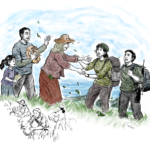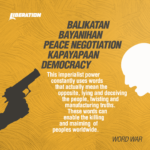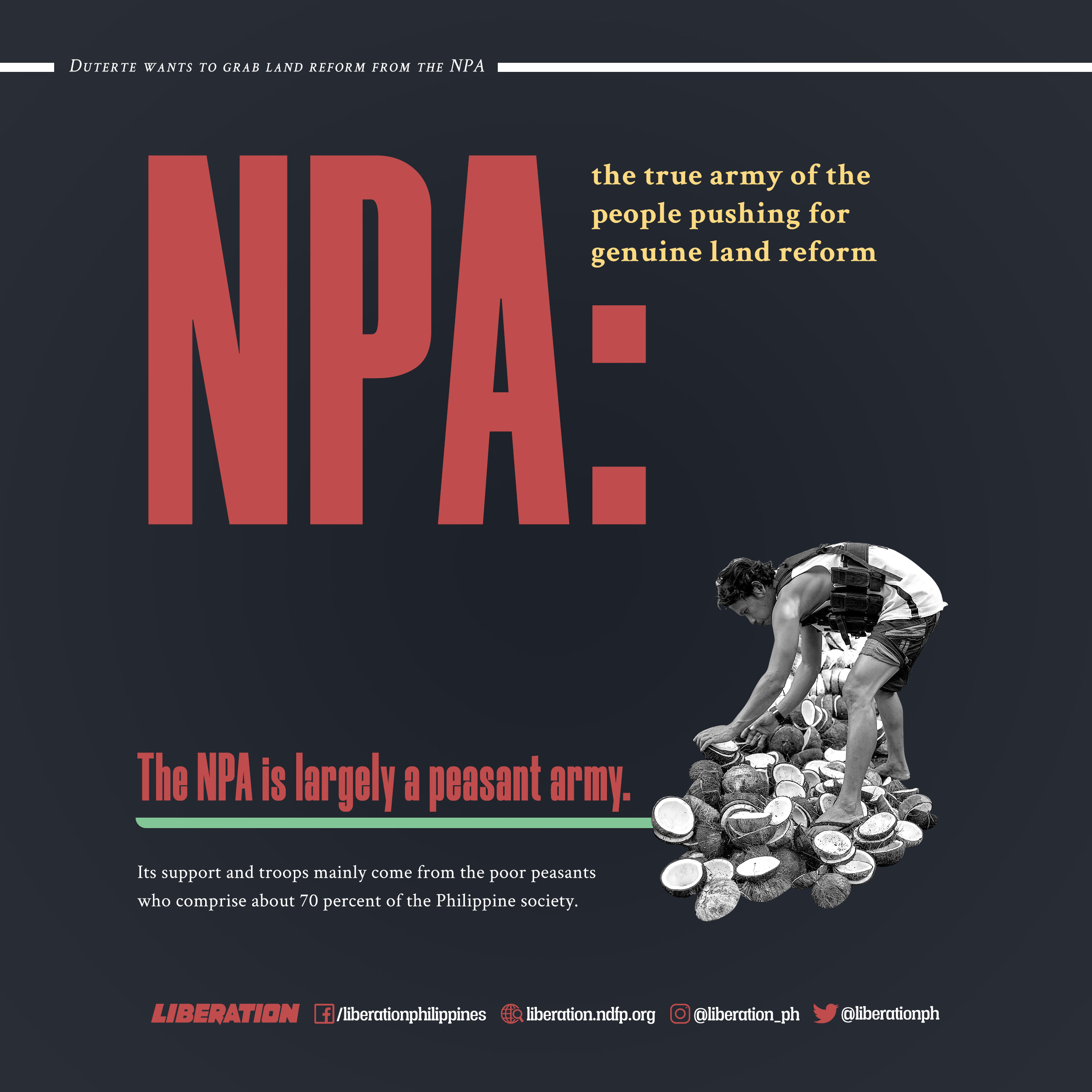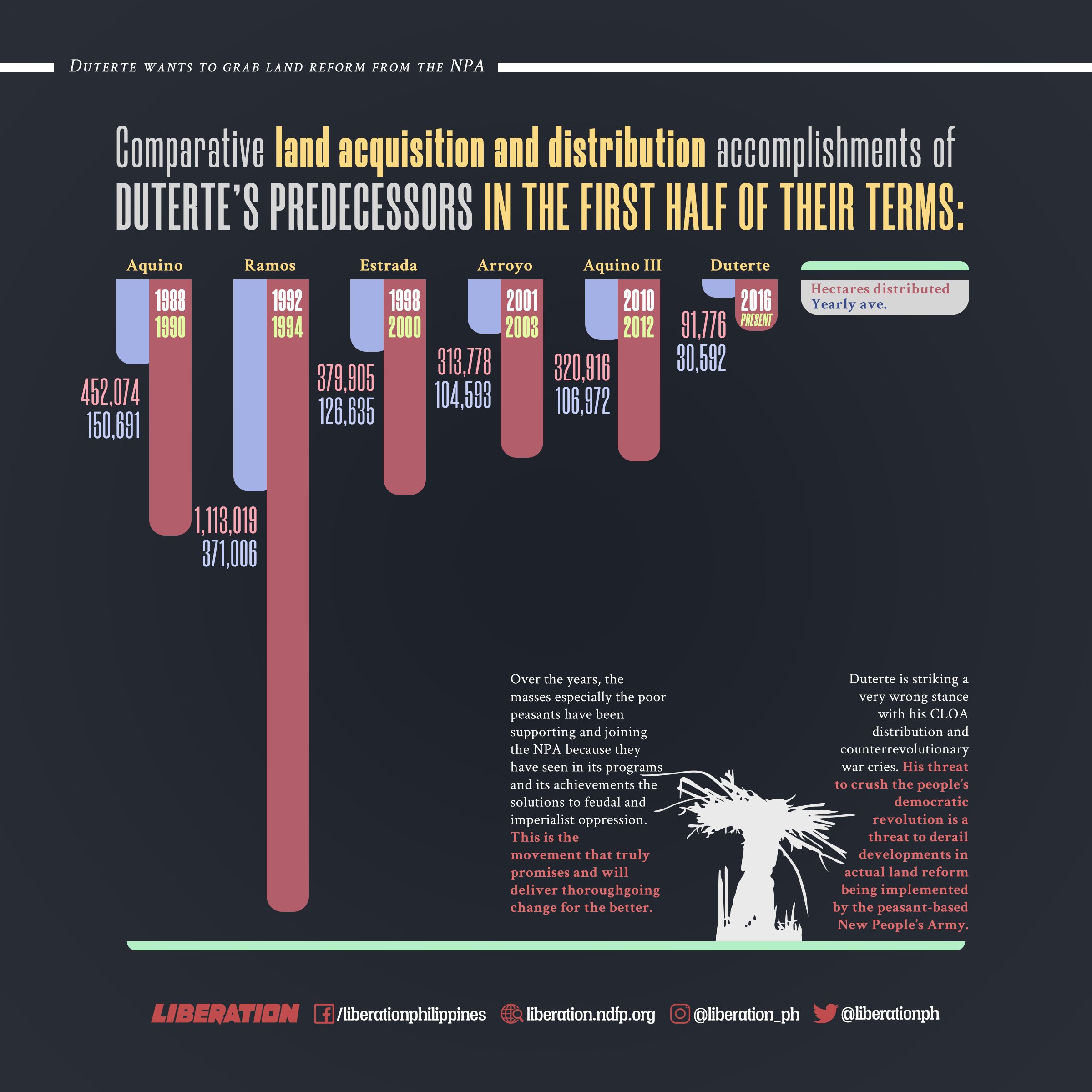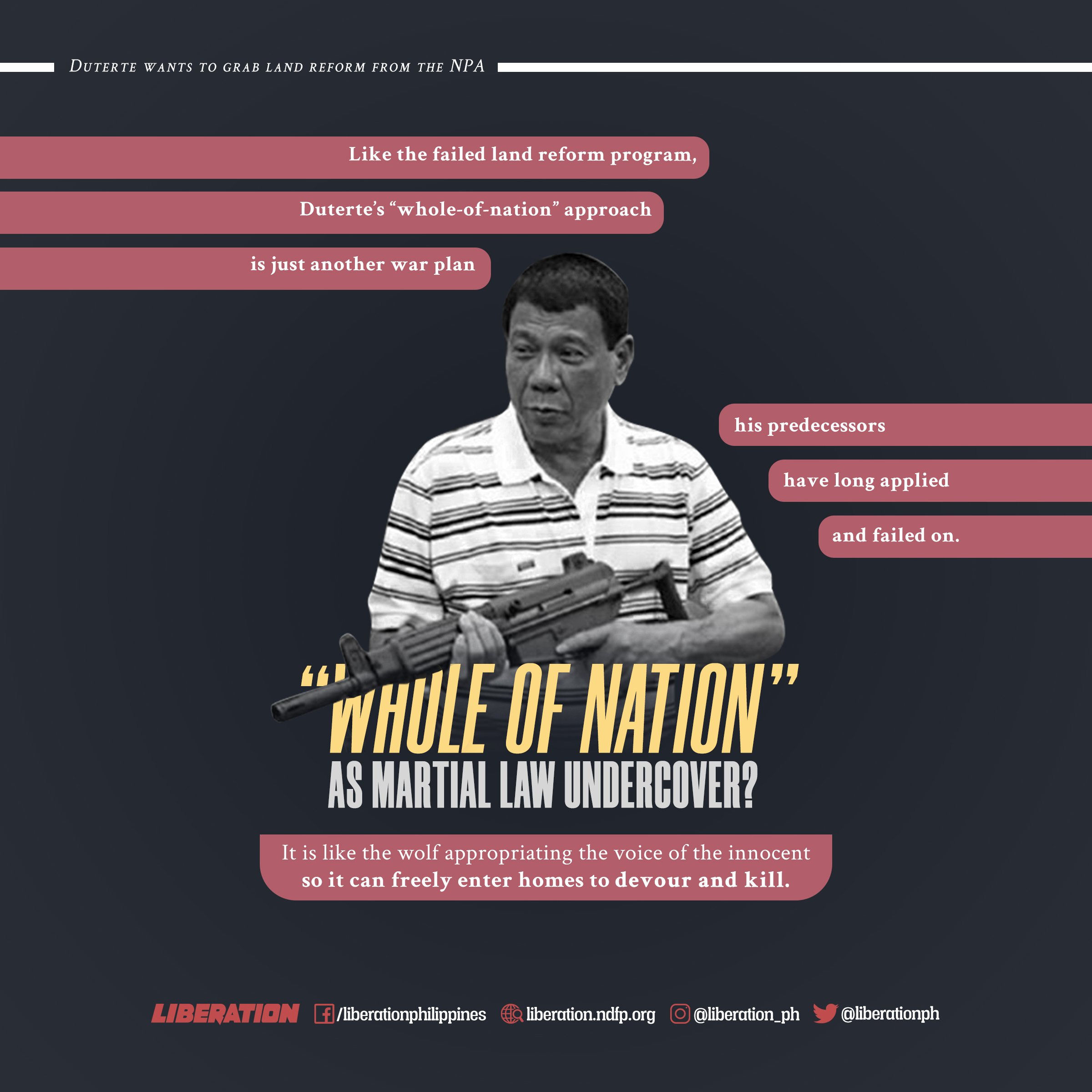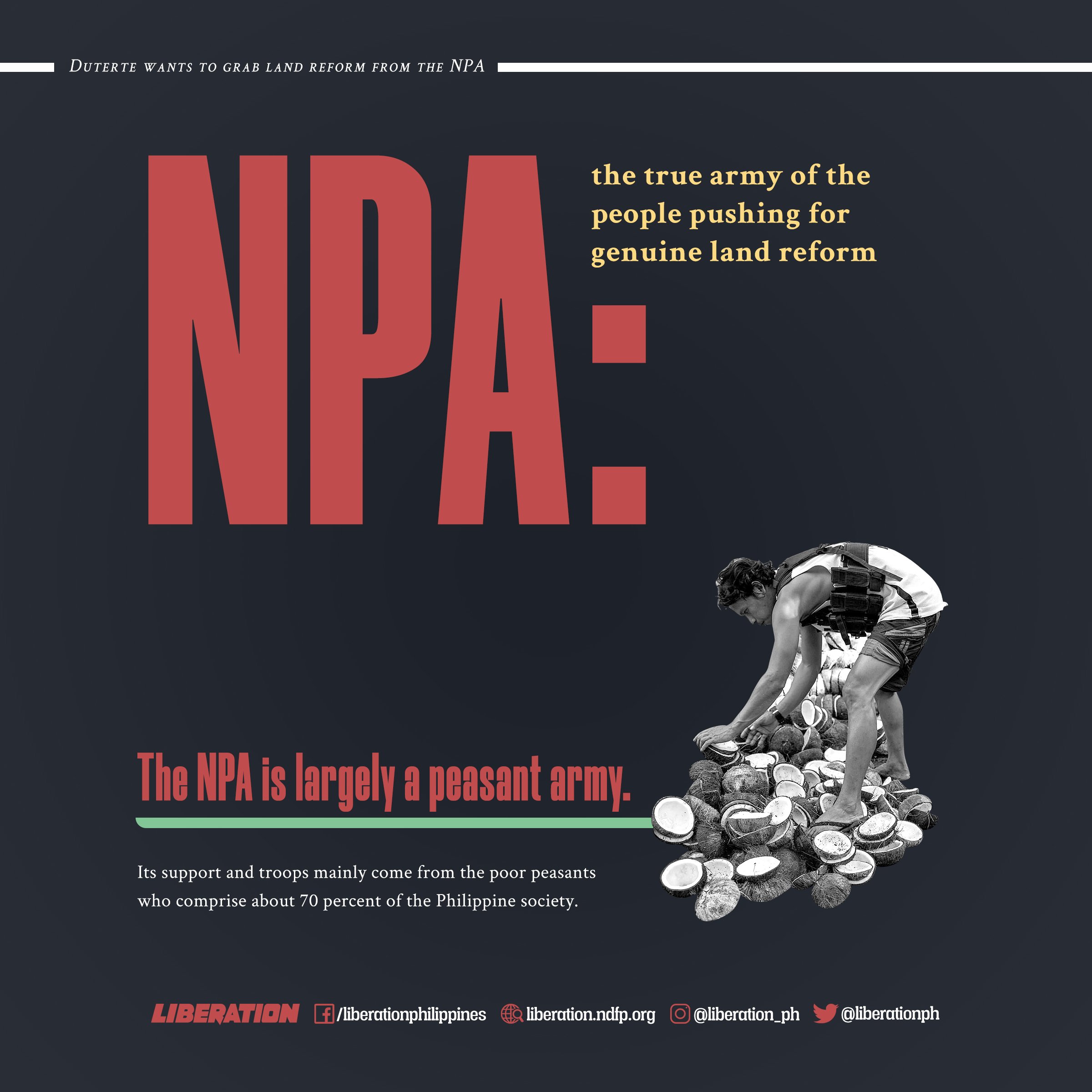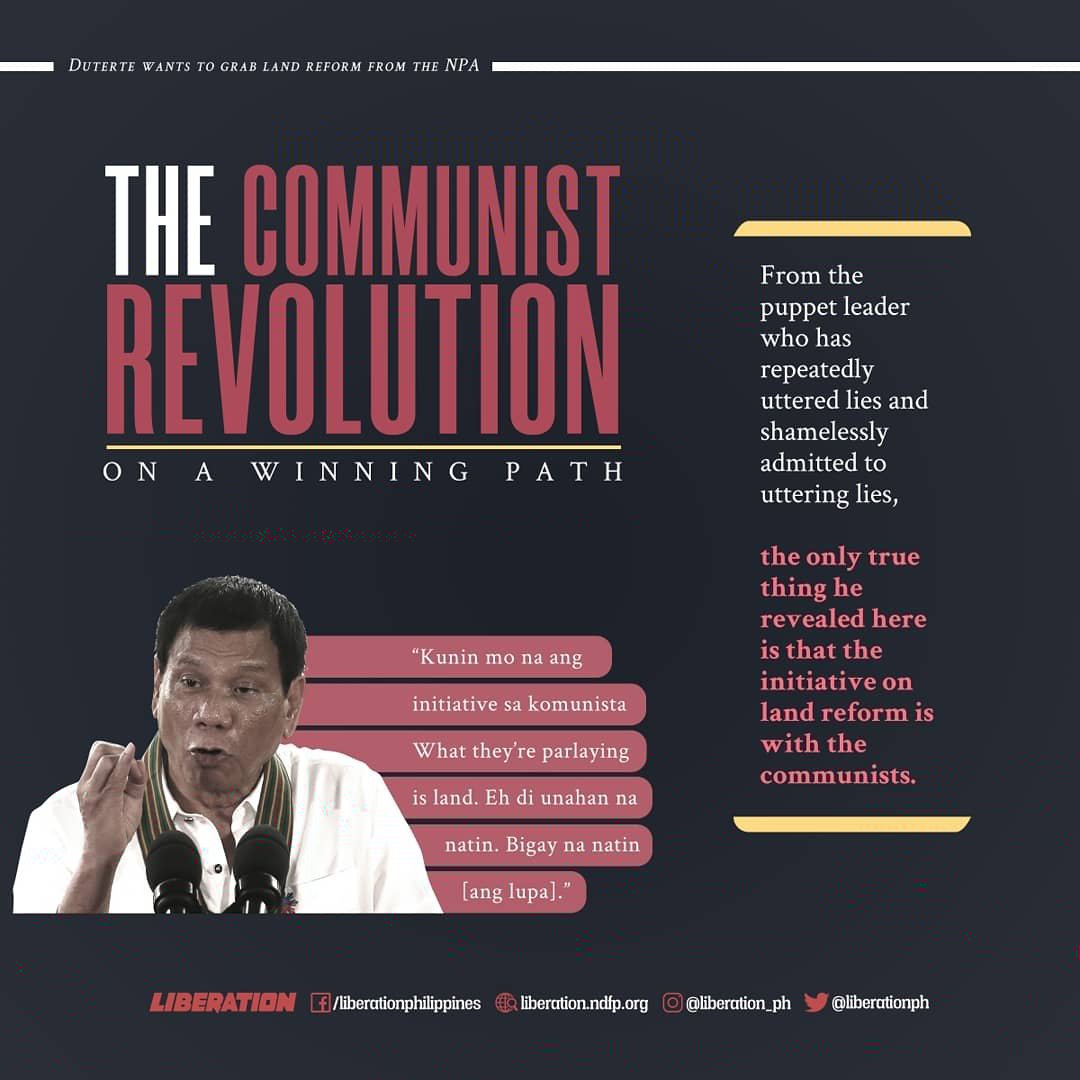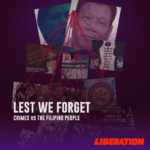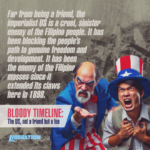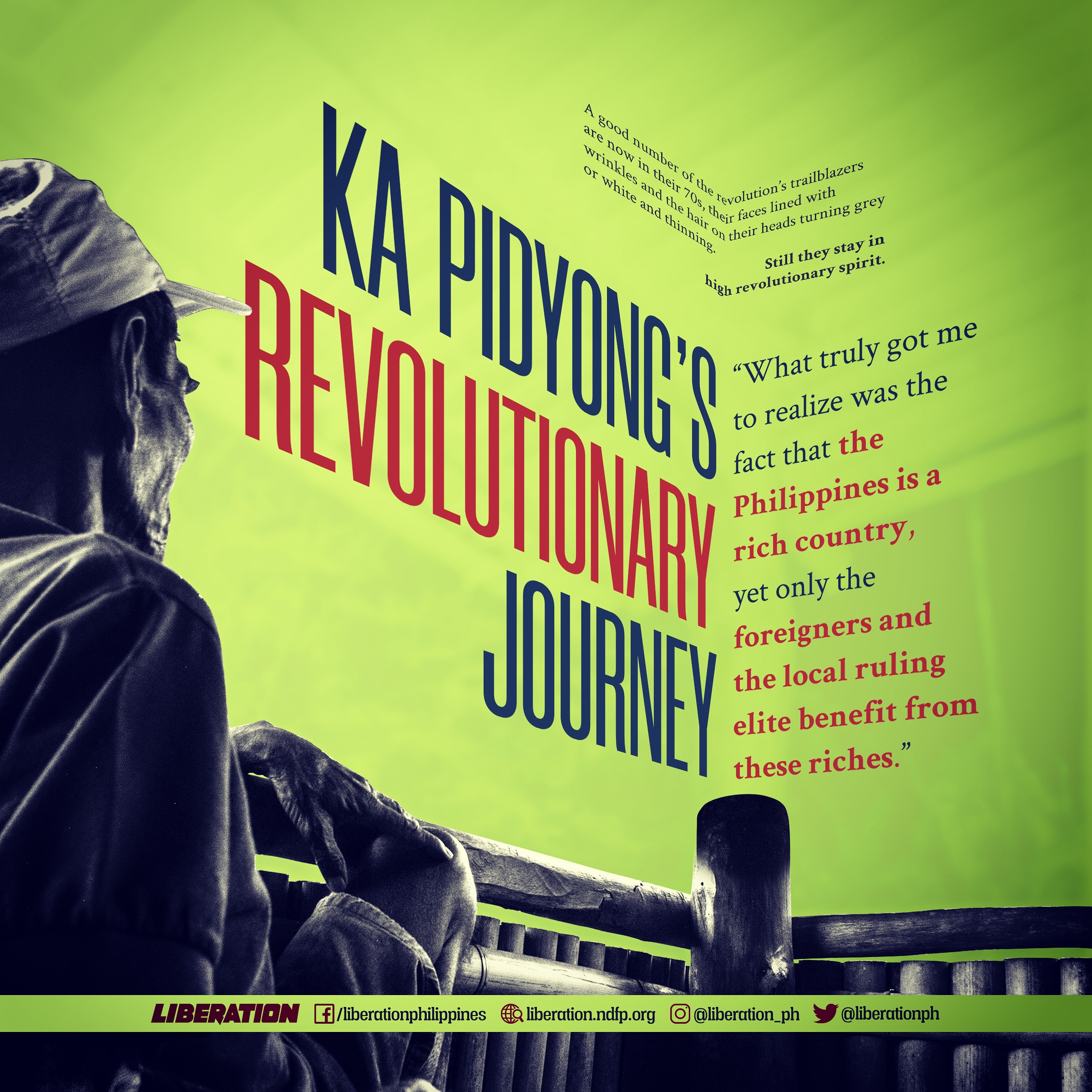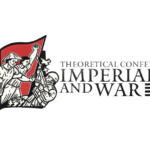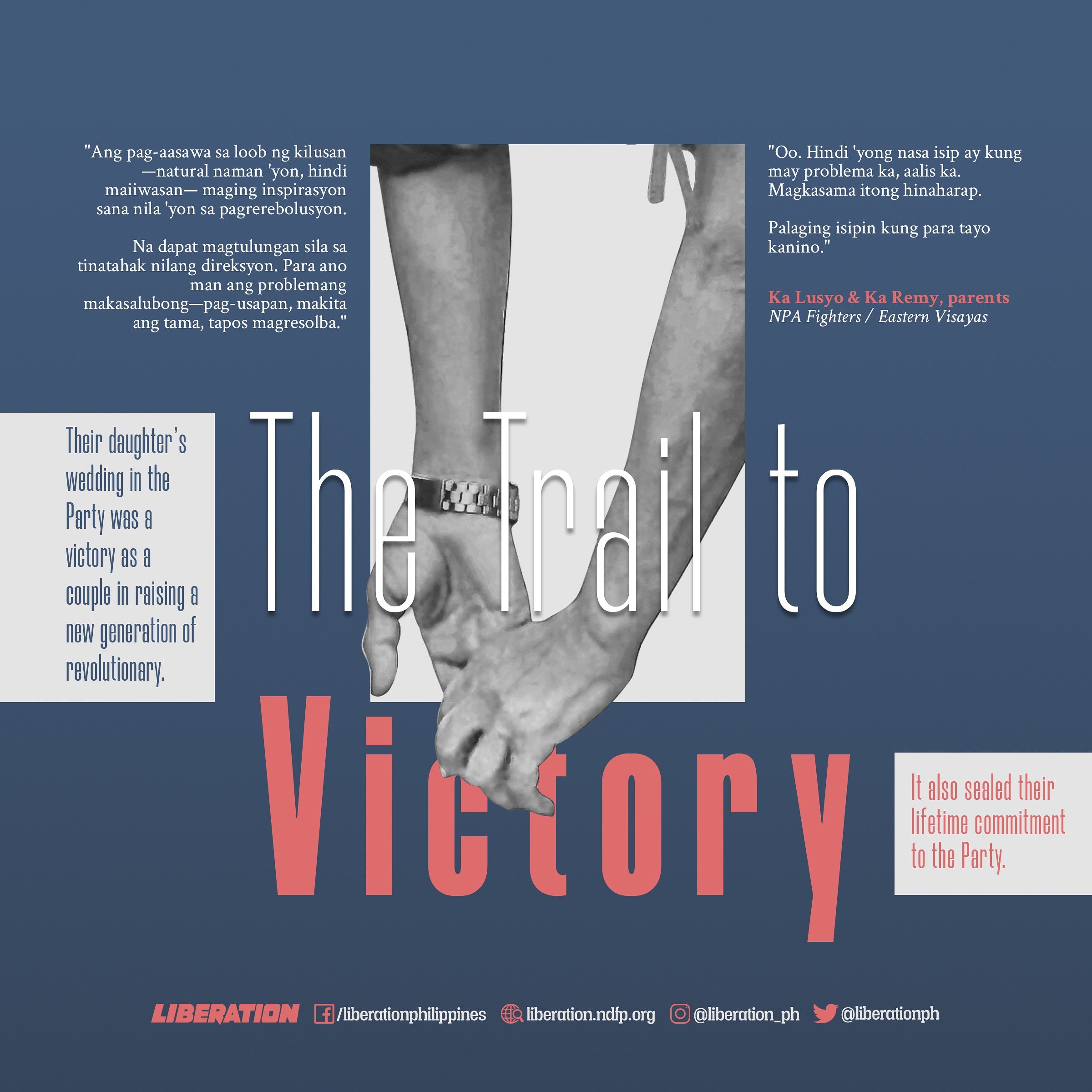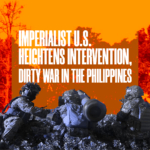Vibrant Democracy Thrives in the People’s Army
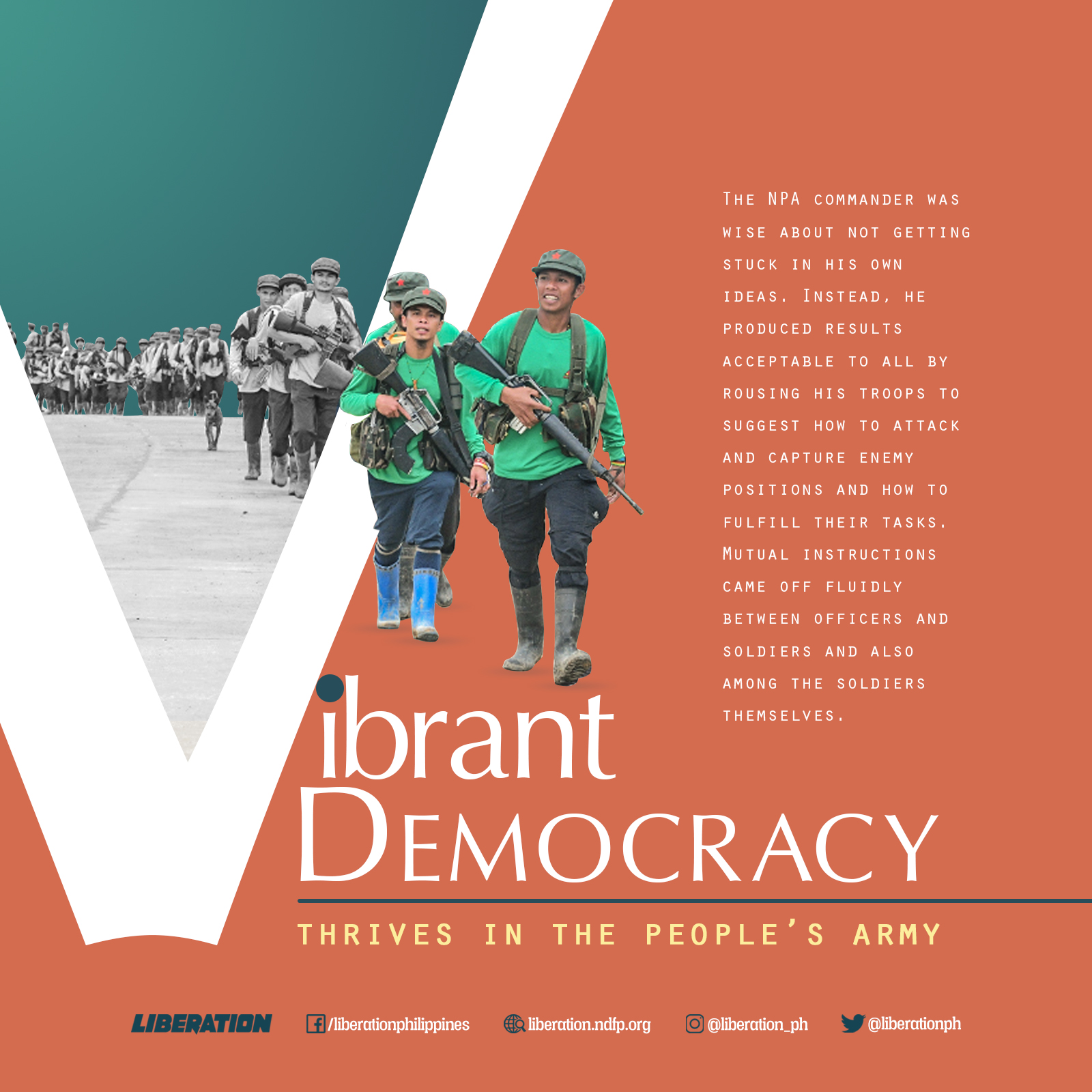
by Vida Gracias and Pat Gambao
Soon after breakfast they started moving into a makeshift schoolhouse on a hillside surrounded by lush vegetation. The sun was shining brightly and the weather was cool. Most of them were young, in their late teens, early 20s and 30s, largely local men and women making up a company of Red fighters somewhere in a guerrilla front in Eastern Visayas.
Casually, with their rifles at hand, they sat on long, tiered bamboo benches, bantering, smiling, some were quiet, others in deep conversation. Soon all eyes were glued to the blackboard as the Red commander finished sketching vicinity maps, with arrows pointing at target structures, entrance and exit points. Silence hovered when the commander, in his forties and apparently a veteran of many battles, turned to face his audience.
The meeting was called to discuss three simultaneous raids to be executed in a day or two. The objectives were to disarm the local police station, warn the despotic town mayor of his abuses and confiscate his firearms right inside his home, and punish a certified informer with blood debts to several victims.
Before laying out the plans, the commander cited the political objectives. He didn’t seem like a commander at all, never flaunting authority or arrogance. Much like a teacher and moderator, he invited his audience to comment on the plan, examine the tactics and details, look for loopholes, alter, adjust, modify. What followed was a lively discussion, with voices resonating, never drowning out those who raised questions or clarifications, seriously listening to the pros and cons. In the middle of the interchanges, jokes would be thrown in and laughter would erupt, until unity was attained.
Then the meeting focused on the most crucial task. The commander did not select who should go in each assault team — he asked for volunteers. And without any prodding, several arms were raised. Everyone knew death could await him/her more than any other, but that seemed like the least of their concerns. How so easily one can offer his life in the service of the people is the mark of a true guerrilla of the New People’s Army (NPA).
The NPA commander was wise about not getting stuck in his own ideas. Instead, he produced results acceptable to all by rousing his troops to suggest how to attack and capture enemy positions and how to fulfill their tasks. Mutual instructions came off fluidly between officers and soldiers and also among the soldiers themselves.
On the day of the raid the entire camp was busy. It seemed like everybody was descending into town to attend a fiesta—except that each Red fighter had baon—a slice of chicken and boiled rice wrapped in banana leaves, prepared by the kitchen staff well before dawn. Days before, clothes and even shoes were washed and dried; firearms were cleaned, polished and examined; and backpacks were sorted out. The women tied their hairs and the men combed theirs. Although the water supply was a bit low as the streams had been drying up, the Red fighters took their baths or simply washed their faces and brushed their teeth. Everyone looked neat and fresh before they began to trek down to the village.
Later in the day the three teams carried out their tactical offensives, swiftly and efficiently. Not a single shot was fired, not one casualty on the side of the Red fighters.
Covered by the dark night, and with high spirits, they went back to the camp, anticipating another round of meeting and lively discussions to assess their strengths and weaknesses in carrying the tactical offensives (TO). Everyone was eager to tell his or her story. No single person would claim credit for the victory as each one had a part in achieving it.
This practice of military democracy, under the centralized leadership of the Communist Party of the Philippines (CPP), is replicated many times over in various regions of the country where units of the NPA operate. Meetings have become “second skin” to red fighters in arriving at collective decisions and collective actions. Victory is invariably achieved via a democratic movement. Hence, anyone who has seen the NPA in action up close can verily debunk the “terrorist” images painted by the reactionary state about the people’s army. Likewise, all the Operational Plans (OPlans) hatched up by successive regime and the Armed Forces of the Philipines (AFP) over the decades, in collaboration with American imperialists, have failed miserably as the people’s army frustrated them all and thus advanced the people’s war.
Democratic Centralism
Democracy thrives in the NPA, guided by the principle of democratic centralism whereby policies and decisions by central leadership correspond to the needs and aspirations of the broad masses. Under the system, the interest of the whole takes primacy over the interest of the parts, the minority is subordinate to the majority and the lower level to the higher level. Through training, commanders and fighters grasp the relationship between democracy and centralism and how democratic centralism is put into practice.
Democracy is attained through the firm grasp and understanding of the cadres and fighters of the principles, policies and line of the national democratic revolution through free and deep discussions among them.
Democracy is manifested in the abolition of feudal practices in the army such as highhandedness and arrogance of officers towards their men, docility of the troops and acquiescence to orders without questioning. Instead, camaraderie prevails in the Red army as officers and men share the problems and difficulties, the passion in their tasks and the joy of fulfilment of their service to the people. It is democracy that enables them to endure and triumph over travails.
The management of the limited resources of the NPA—equipment, supplies and funds—is a collective responsibility. The unit members assist the leadership.
Discipline in the NPA
Democracy strengthens discipline and combat effectiveness. For an army to be hailed by the people as capable of defeating the superior enemy must have a high sense of discipline. This galvanizes the unity among commanders and Red fighters and between the Red army and the people. Thus, the NPA has in its heart and mind the Three Main Rules of Discipline and the Eight Points of Attention, a legacy from Chairman Mao Zedong and the victorious Chinese Communist Revolution.
The Three Main Rules of Discipline are:
-
(1) Obey orders in all your actions;
-
(2) Do not take a single needle or piece of thread from the masses;
-
(3) Turn in everything captured.
The Eight Points of Attention are:
- (1) Speak politely;
- (2) Pay fairly for what you buy;
- (3) Return everything you borrow;
- (4) Pay for anything you damage;
- (5) Do not hit or swear at people;
- (6) Do not damage crops;
- (7) Do not take liberties with women;
- (8) Do not ill-treat captives.
The Three Main Rules of Discipline and Eight Points of Attention also serve as the NPA’s guide in the treatment of Prisoners of War (POW). Unlike in the reactionary armed forces, the revolutionary forces fully respect human rights and adhere to the principles of humanitarian law. Contrary to the image created by the reactionary state’s propaganda machine, the people’s court in the guerrilla fronts is no “kangaroo court.” The people’s court abides by a judicial system that observes a “judicious procedure: investigation, indictment, hearings, sentencing, pardon and release.”
Well-rounded Fighting Force
The revolutionary cause that the New People’s Army (NPA) is fighting for—the interests of the broad toiling masses, their social emancipation and national liberation from US imperialism and the local exploiting classes—strengthens its resolve to be the epitome of unflinching self-sacrifice, courage, discipline and democracy. With this resolve and as it deeply immerses in the bosom of the masses, the NPA under the absolute leadership of the CPP has become an invincible force to contend against.
Communists advocate peace, just peace, and the “abolition of war.” But the US-supported local big bourgeois comprador and landlord class keep a ferocious reactionary army to perpetuate their hold on power and continue to exploit and suppress the struggling masses. Acknowledging the lessons of history, the truth that “political power grows of the barrel of the gun” the NPA, composed largely of the peasantry, takes up the gun and wages a revolutionary war to seize power, smash the reactionary state, and create a sovereign democratic republic of the people. However, ever conscious that politics commands the gun and not the other way around, the Party leads the army and ensures that it is not just a fighting force but an edifice of revolutionary strength and power of the people.
Under the Party leadership, the NPA has a fundamental task to push forward the armed struggle, carry out agrarian revolution, and build the revolution’s mass base. Closely linked with the masses, it organizes and rouses them as well as helps them in economic production, and in building the organs of political power.
The practice of democracy in the New People’s Army is essential to its consolidation and development. Democracy in the New People’s Army has steeled unity, fortified discipline and fired up a potent force that will sustain the protracted people’s war until victory.###
#PeasantMonth
#ServeThePeople
#JoinTheNPA
—–
VISIT and FOLLOW
Website: https://liberation.ndfp.info
Facebook: https://fb.com/liberationphilippines
Twitter: https://twitter.com/liberationph
Instagram: https://instagram.com/liberation_ph

